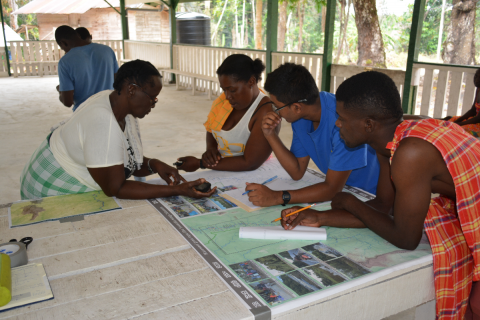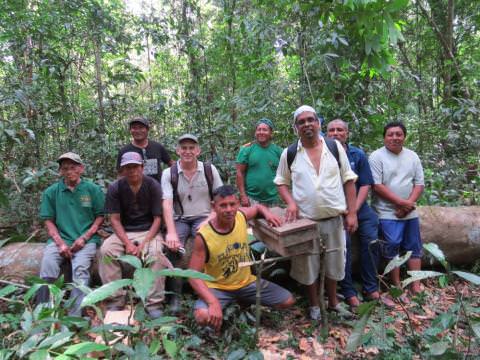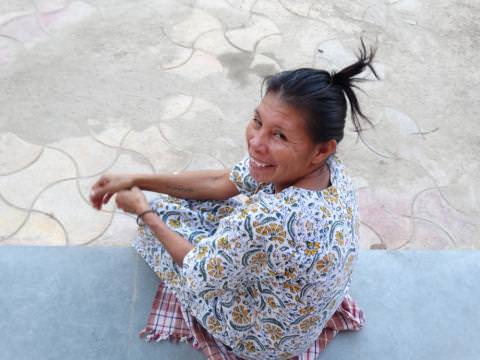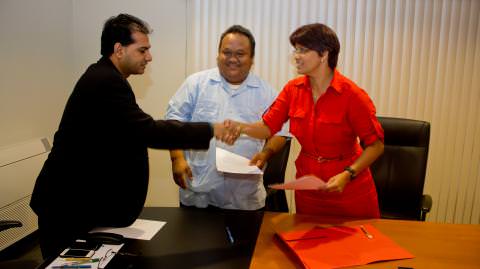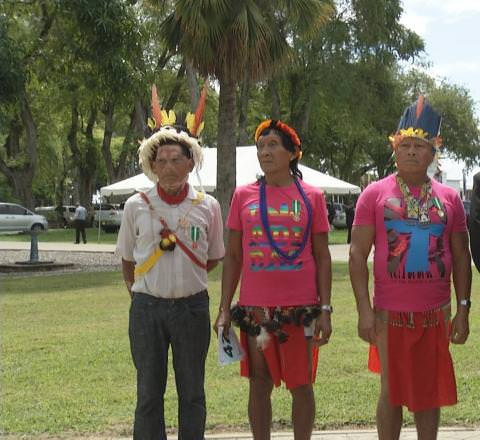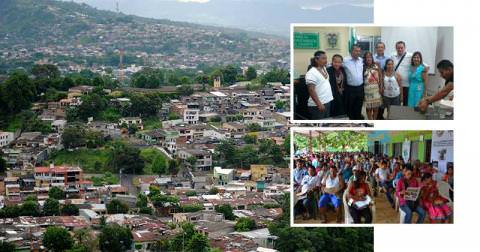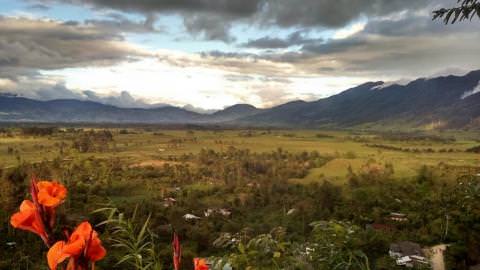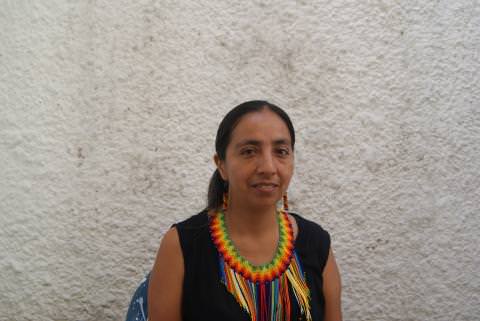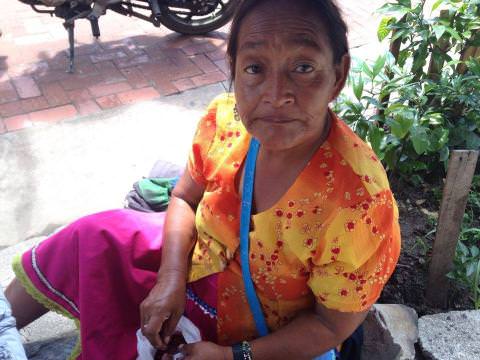Posts by Amazon Conservation Team
Forging New Paths with the Matawai
In September, ACT-Suriname staff visited the Matawai territory for a second time this year, to validate the maps that were produced on the basis of data collected during fieldwork in February and March. The team also went on a three day expedition to chart out a path to nearby Ebba Top mountain.
Read MorePlan Bee from Kwamalasamutu
In the indigenous village of Kwamalasamutu in southern Suriname, ACT has launched a pilot project to help the community members raise forest bees for income. The bees’ “bush honey” will be marketed in the nation’s capital city of Paramaribo.
Read MoreSorrow and Light in Rajasthan
Anna Nantawi and Ketoera Aparaka—women from indigenous villages of the nation of Suriname’s remote rainforest interior—are two months into their solar engineering training at the Barefoot College campus in India.
Read MoreCooperation to Assist Suriname’s Forest Communities
On October 8, 2015, Suriname’s Ministry of Agriculture, Cattle Breeding, and Fisheries and the Amazon Conservation Team Suriname signed a three-year collaboration agreement.
Read MoreTrio shamans honored by the Government of Suriname
On Tuesday, November 17, 2015, the Trio shamans Riri Pinoma, Wuta Wajimnoe, and Amashina Oedematoe were decorated with the Honorary Order of the Palm by the President of Suriname Desiré Bouterse. This annual decoration ceremony had a special significance this year, as Suriname became an independent country exactly 40 years ago.
Read MoreThe government of Caquetá Focuses Resources on its Indigenous Communities
On November 12, 2015, the 10,181 indigenous inhabitants of the Colombian department (state) of Caquetá compiled all of their needs and their historically violated rights in a single document. After three years of work in this region, a first comprehensive indigenous public policy was approved.
Read MoreColombia’s Inga-Kamentsa Achieve Historic Territorial Expansion
In December 2015, with ACT’s assistance, Colombia’s Inga-Kamentsa people were granted governance rights over roughly 100,000 acres of their traditional lands. The community had laid claims to those lands for more than 300 years.
Read MorePushing Back Against an Amazon Gold Rush: Maps Lead the Way
“During a recent visit to rainforests of Suriname, I noticed that a particular problem is increasingly weighing on the minds of the Trio Indians of Kwamalasamutu village: some men are being seduced by the opportunity for pay in distant gold mining ventures, leaving the village for long periods of time and occasionally not returning at all.”
Read MoreThe Indigenous Peoples of Caquetá Put a Human Face on Politics
Recently, a comprehensive indigenous public policy was officially signed by the government of Colombia’s Caquetá region. The policy—drafted by seven indigenous groups with technical assistance from ACT—will, for the first time, provide a platform for the indigenous communities to have a say in Caquetá’s future.
Read MoreThe Campaign of the Indigenous Peoples of Colombia’s Caquetá Region to Preserve their Culture
In the past several years, the indigenous peoples of the Colombian department of Caquetá have taken enormous steps forward in asserting their rights, creating a representative body and crafting a recently ratified indigenous public policy for the region. ACT guided and assisted the communities through these processes.
Read More

